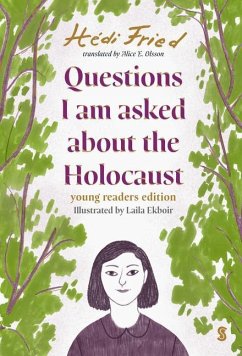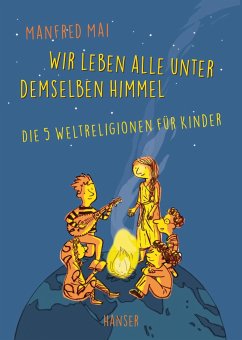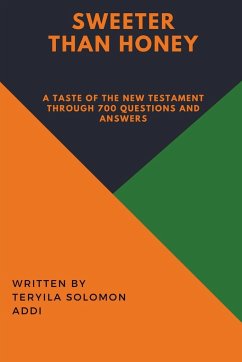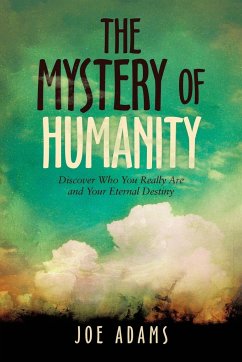
Questions I Am Asked about the Holocaust

PAYBACK Punkte
7 °P sammeln!
One of the few remaining living Holocaust survivors answers the questions children ask her "There are no stupid questions, nor any forbidden ones, but there are some questions that have no answer." Hédi Fried was nineteen when the Nazis snatched her family from their home in Eastern Europe and transported them to Auschwitz, where she and her sister were forced into hard labor until the end of the war. Now ninety-eight, she has spent her life educating young people about the Holocaust and answering their questions about one of the darkest periods in human history. Questions like, "How was it t...
One of the few remaining living Holocaust survivors answers the questions children ask her "There are no stupid questions, nor any forbidden ones, but there are some questions that have no answer." Hédi Fried was nineteen when the Nazis snatched her family from their home in Eastern Europe and transported them to Auschwitz, where she and her sister were forced into hard labor until the end of the war. Now ninety-eight, she has spent her life educating young people about the Holocaust and answering their questions about one of the darkest periods in human history. Questions like, "How was it to live in the camps?" "Did you dream at night?" "Why did Hitler hate the Jews?" "Do you see yourself in today's refugees?" and "Can you forgive?" With sensitivity and complete candor, Fried answers these questions and more in this deeply human book that urges us never to forget and never to repeat.






![The Guide for the Perplexed [UNABRIDGED] Cover The Guide for the Perplexed [UNABRIDGED]](https://bilder.buecher.de/produkte/22/22904/22904389n.jpg)





